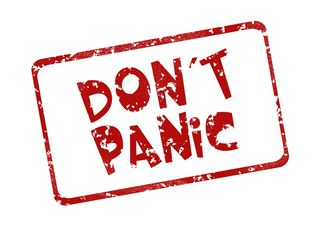Anxiety
Anxiety and Panic Treatment: Rely On Science, Not Placebos
Evidence based treatments are available for anxiety and panic. Avoid placebos.
Posted February 3, 2020 Reviewed by Chloe Williams

Recently, a neighbor posted a question on our local Nextdoor.com website asking for help regarding her husband. She asked if anyone had any advice about treatment for anxiety and panic attacks. She said that she and her husband went to their local health care facility and were not satisfied with the advice and service provided. I quickly offered suggestions regarding local psychologists and mental health professionals and clinics that specialize in evidence-based, quality standard of care treatment for anxiety and panic.
Luckily for them, there is excellent and quality treatment available and in my area (i.e., Silicon Valley close to Stanford University). There are many good options for high-quality care locally available. However, what followed my response was simply shocking and completely breathtaking. Neighbors, who are generally very smart, thoughtful, well educated, and reasonable, weighed in on their suggestions about how to best approach anxiety and panic with suggestions very contrary to mine. They suggested kava, yoga, acupuncture, red light therapy, breathing, CBD oil, tapping, earthing, taking an amino acid supplement (L Theanine), using a dosist pen, and the wisdom of a 24-year-old YouTube influencer, Gibi ASMR.
Wow! Go figure!
When it comes to the treatment of anxiety and panic, as well as so many other mental health-related problems, the good news is that there is typically a very large science-based literature that includes quality published research regarding tried and true intervention strategies. Additionally, the major mental health associations, such as the American Psychological Association, have worked hard to put together evidence-based clinical practice guidelines to help professionals and the public alike regarding best intervention strategies for a wide variety of emotional and behavioral problems. These guidelines have benefited from leading experts working on task forces over many years to develop the very best standards of care. Furthermore, many professional associations offer easy to understand guidelines for the public and licensed mental health professionals typically have plenty of years of experience treating these common problems like anxiety, depression, and addictions too.
Certainly, strategies like CBD oil, kava, light therapy, and the great wisdom of young YouTube influencers may help people to feel better with whatever ails them but this is likely due to the placebo effect. In a nutshell, if you believe something or some strategy will help you it likely will. Most anything can act as a placebo if you believe that it will help you.
I would hope that my neighbors, and everyone for that matter, would first try quality evidence-based interventions for anxiety and panic before turning to other non-proven strategies. It is the only reasonable and prudent course of action.
So, what do you think?
Copyright 2020, Thomas G. Plante, PhD, ABPP


